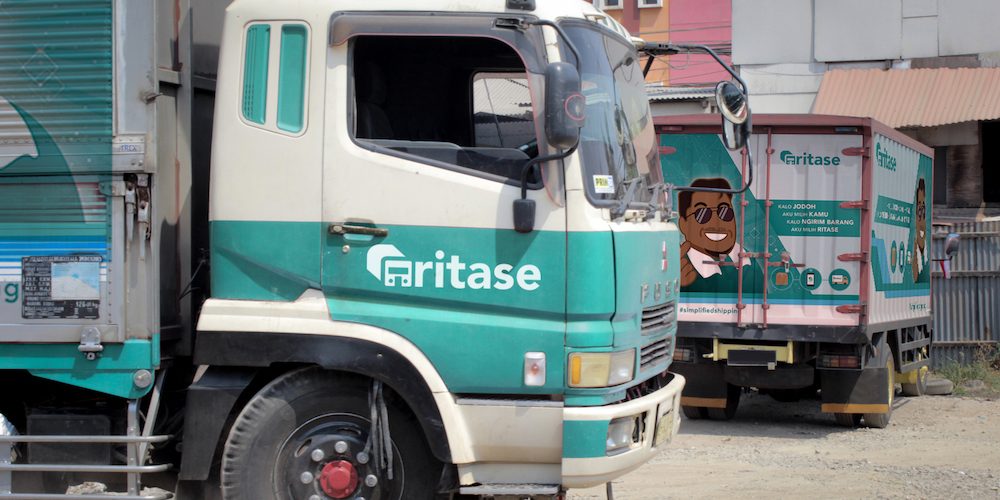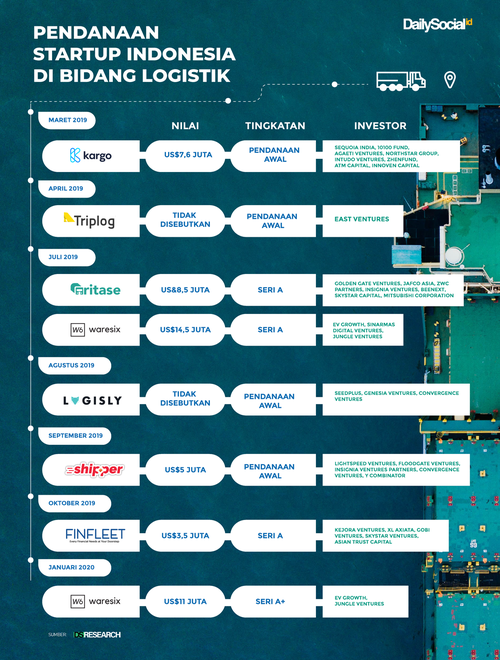Ritase Creates a Special Logistics Platform for Sea Transportation
RitSea complements all the "first mile" aspects of logistics within the Ritase ecosystem
Digital logistics startup Ritase announced a new product expansion called RitSea, specifically addressing the marine transportation sector. An ecosystem that is considered ready for digital transformation and the demand that comes from the market, is a strong reason for Ritase to play in this sector.
Founder and CEO of Ritase Kusnadi Faith explained, so far the stakeholders in the sea transportation business have faced a number of problems. senders (shipper) is troubled by having to manually complete various stages such as sorting and contacting carriers.
Then, monitor shipments via telephone because of the clarity of the point of departure (port of loading) and delivery schedule (shipment). Reports must also be prepared manually.
Meanwhile, from the carrier side (Transportation) struggling with inefficient routes, logging booking orders complex, as well as the many brokers that make prices uncompetitive.
"Consumers get transparent and affordable prices booking according to ship schedule online. We also develop solutions so that consumers get schedules shipping in a manner real-time. This makes it very easy for consumers," said Iman in an official statement, Thursday (12/3).
Through RitSea, shippers will have dashboard access, so they can monitor drivers and payloads, as well as monitor booking and shipment in one screen.
Meanwhile, for carriers it will be easy to receive orders through the system, monitor drivers and cargo online for 24 hours, and make payments easy to pass e-wallet.
As explained further, RitSea is part of Ritase's multimodal transportation solution that combines rail transportation for land lines, planes for air routes and shipping for waterways. Through a solution like this, the platform will look for the fastest and cheapest combination of transportation systemically. "Consumers have choices that suit their needs."

Iman said RitSea had been connected to major national shipping companies to ensure excellent service. The identity of the partner that Ritase hooked up was not revealed.
For the record, RitSea adds to the series of SaaS-based platforms the company has developed to bring together stakeholder requiring delivery and carrier vendors. Previously, this startup provided Ritase TMS (Transport Management System), Ritase Enterprise, Ritase Supply Chain Financing (SCF).
Next, Ritshop for purchases spare parts and support needs, Rit2Go to support delivery for SMEs, and Ritase Pay. "RitSea has covered all aspects first mile in logistics. Soon we will be great app in logistics."
In July 2019, the company announced series A pendanaan funding worth Rp120 billion from Golden Gate Ventures, Insignia Ventures, Skystar Capital, and others. Last year, the company facilitated more than 40 thousand shipments per month and worked with 74 global and retail brands, such as Nestle, Unilever, Japfa and Lotte.
The company has brought together more than 600 small and medium-sized transportation companies, totaling more than 11 individual trucks since it was first founded in 2018.
Indonesia's logistics competitiveness
Ritase's expansion is actually very much reflected in the large logistics potential that can be tapped through digital transformation. According to World Bank, Indonesia is still ranked 5th from other ASEAN countries based on logistics performance (Logistics Performance Index/LPI) at 3,15 on a scale of 1-5.
The closer to a scale of 5 indicates the logistics competitiveness of a country is getting better, on the contrary the closer to 1 the worse it is.
Indonesia's position lost to Singapore (4,0), Thailand (3,41), Vietnam (3,27), and Malaysia (3,22). However, in the last eight years Indonesia's logistics competitiveness has shown improvement. On a global scale, Indonesia ranks 46th out of 160 countries in 2018, which is the best since 2010.
This data is accompanied by the momentum of growth in the transportation and warehousing business sector in Indonesia GDP product which increased by 7,01% overall in 2018. This growth is much higher than Indonesia's overall economic growth in 2018 of 5,17%.
The reason for this increase is the impact of the increasing contribution of air and land transportation due to international events and the development of land transportation infrastructure. BPS recorded that total production from this sector reached IDR 796,76 trillion or contributed 5,37% of total GDP in 2018.
Furthermore, BPS data shows that land transportation contributes 44,41% to the logistics sector, air transportation by 30,16%, warehousing and transportation support services 1,24%, navy 0,57%, river lake and ferry transportation 0,14. 0,1%, and rail freight XNUMX%.
Sign up for our
newsletter

